In the United States, 1 out of every 3 people has at least one tattoo. Clearly, the old-fashioned stigma that tattoos are part of a rough-and-tumble subculture has become a thing of the past. In fact, human beings have been decorating their bodies with permanent ink for thousands of years. Tattoos show up again and again across cultures and generations. There is something about getting a tattoo that is permanently apart of human nature. So then… why, exactly, do so many people want tattoos?
10. Ancient Ink
Tattoos are a tradition that go back thousands of years. The oldest discovered proof of tattoos dates back to 3250 BC. They belonged to a man who was nicknamed “Otzi,” and his body was frozen beneath a glacier in the Alps, which preserved his skin for all these years. He had a total of at least 61 tattoos all over his body. Before discovering Otzi, the oldest tattoo was found on a man who died in his 30s. He had a permanent mustache tattooed on his upper lip… because apparently hipsters are a lot older than we realize. His body was discovered in Chile, and is estimated to be from 4000 BC.
Ancient tattooing tools have been found around the globe, so it just goes to show that tattoos have been around for thousands of years. It’s solid proof that tattoos are part of human history. Researchers at the Smithsonian believe that Otzi’s tattoos indicate that there was a long-standing tradition of tattoos countless years before him. Researchers believe that tattoos could have possibly been a very primitive form of healing or therapy. However, mustache tattoos may have simply made up for someone not being able to grow his own facial hair. The age of tattoos just proves that it isn’t a modern fad, and that the reasons why people want to ink their skin is set deeply in human psychology.
9. Improving One’s Self

According to Psychology Today, tattoos are a form of enhancement. People see it as a way of taking the blank canvas of a human body, and somehow making it better. It’s very similar to anyone going on a diet or getting plastic surgery in order to make themselves look and feel better than they did before they got a tattoo.
People who get tattoos hope that it will make them look more attractive, and that people will notice them more often. Instead of noticing someone for their beautiful face or nice figure, a tattoo is a piece of art that becomes part of the owner’s body.
8. Sense of Belonging
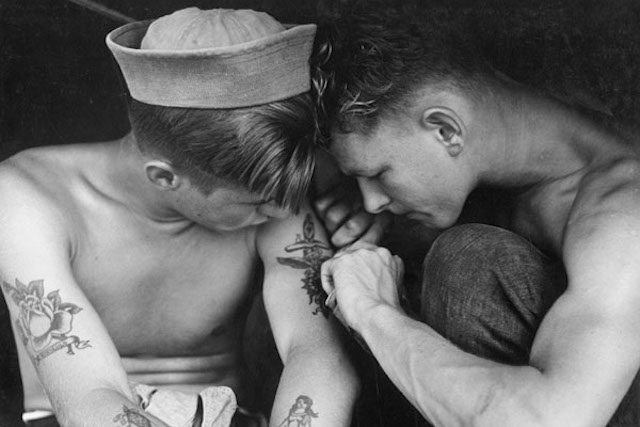
Human beings have been apart of tribes for as long as they have existed. Many gangs get matching tattoos as a representation that they are truly apart of the group. Of course, not all cliques of people with tattoos are criminals. In fact, people who join the army are usually seeking a type of brotherhood that they cannot find anywhere else, and getting tattoos during military service has become a rite of passage.
In the early 1900s, sailors in the Navy were the first ones to proudly return home from their travels with tattoos they got as a souvenir from their time spent in foreign lands. According to a post on the US Army’s official website, they estimate that around 90% of all soldiers have at least one tattoo. It gives them a sense of pride, and it also becomes a way to memorialize their fallen brothers, as well as remember tragic events, like the 9/11 attacks. According to a study conducted by LifeHacker, people in the military account for 36% of all people who have tattoos.
7. Less Anxiety About Death

Anyone with a tattoo will roll their eyes at the all-too-common question: what they will do about their tattoos when you get older, and their skin starts to sag? Clearly, that possibility has crossed someone’s mind before getting a tattoo, but they are making the decision that they don’t care. People with tattoos are more likely to live in the moment, highlighting youthful skin, and not worry too much about the future.
Amy Bleuel founded an organization called Project Semicolon, where she encouraged anyone suffering from depression, anxiety, and suicidal thoughts to draw a semicolon on their wrist as a reminder that anything difficult going on in their life does not have a period at the end of that sentence. Life goes on, and things get better. Amy said, “You are the author of your life, and you should not end it.” She got a tattoo of a semicolon in memory of her father, who committed suicide. Many other people did the same.
6. Risk-Taking and Thrill-Seeking
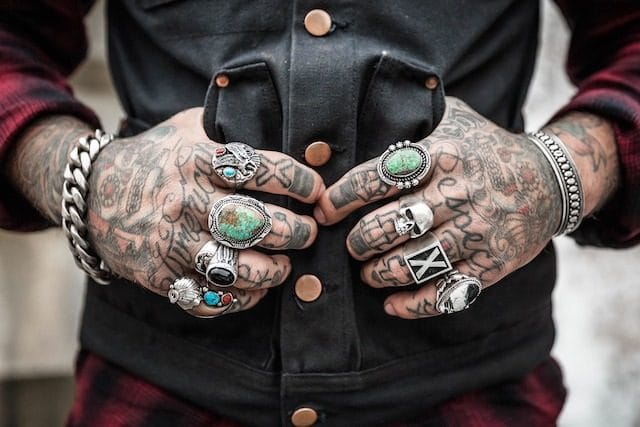
In the early 1900s, one of the main places where people got their tattoos was at the circus. Traveling carnival workers were known for having a lot of tattoos, and every troupe usually had an artist who would tattoo members of the public for a fee. People who got a tattoo done did it because they thought it was far more exciting than the rides and the sideshow attractions.
According to several studies, people with tattoos are more likely to take risks in their life. For example, people with tattoos have a higher probability of smoking cigarettes, which is taking the risk of possibly developing lung cancer one day. Anyone who gets a tattoo also knows that sometimes, the artist doesn’t exactly do a very good job, and going under the needle is taking a risk that the artwork is not going to end up exactly how you imagined it would. There are some pretty awful tattoos out there, and they all started with someone who was willing to take a risk.
5. Uniqueness
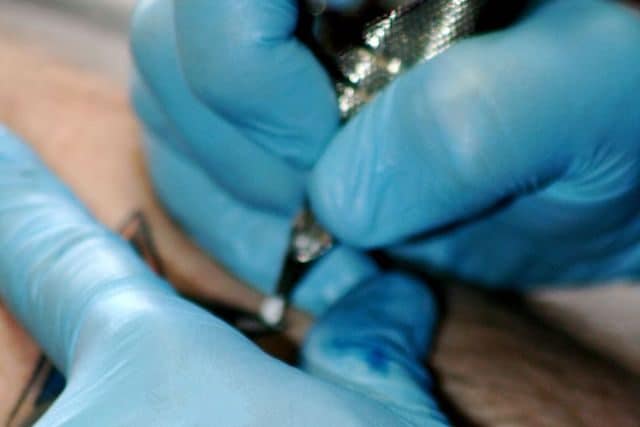
According to Dr. Vinita Mehta from Psychology Today, a poll of personal traits of people with tattoos led to a few common similarities. People with tattoos generally want to feel unique, and they want to explore their life and live experiences that are outside of the norm.
One study showed that women who were experiencing anxiety and low self-esteem who got tattoos suddenly got a huge burst in new confidence and happiness immediately after getting the tattoo. However, after around three weeks, women begin to feel anxiety about the tattoo, and begin to have second thoughts. Men, on the other hand, had way less anxiety or regret about their decision, and it only continued to make them feel better about themselves. In fact, women are far more likely to get a tattoo removed than men.
In 2006, a dermatologist named Myrna L. Armstrong at the Texas Tech University Health Services Center polled 196 women who were getting their tattoos removed. She asked the reasons for why they got the tattoo in the first place, and why they decided to remove it. The #1 answer about why they got the tattoo was that they wanted to feel unique. By the time they turned 30, however, they wanted it gone. The #1 answer as to why they were getting rid of it was because they had become embarrassed of the tattoo as they got older.
4. Anger

Dr. Kirby Farrell from Psychology Today calls tattoos “passive aggressive” since he considers some of the more violent images people get tattooed on their body to be a silent symbol against society that stems from inner anger. According to a study done in 2015 by Professor Viren Swami from Anglia Ruskin University, the more tattoos someone has on their body, the angrier they are. And it’s not just silent stewing. Swami found that people with multiple tattoos are more likely to be verbally aggressive, violent, and rebel against authority.
The questions that Swami asked were along the lines of, “If someone in a position of authority was yelling at you, how would you respond?” They were given multiple options, which included standing there and taking it, yelling back, or waiting for the person of authority to finish before responding. The vast majority of people with tattoos responded that they would not stand for disrespect, and yell at the authority figure without hesitation. Unfortunately, this study is not good news for job seekers, especially when many companies already have a no-tattoo policy. Thankfully, there are plenty of companies out there who are willing to hire people with visible tattoos.
3. Addiction Misconceptions
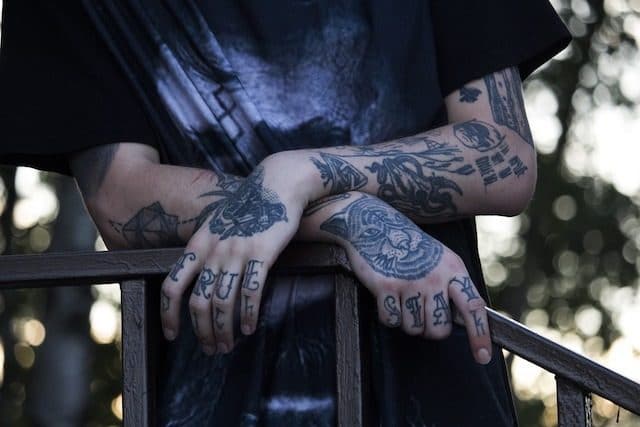
Contrary to what popular culture may lead you to believe, people with multiple tattoos are not “addicted” to getting them. In fact, the vast majority of people will start with one tattoo, and then wait for years before getting their second. Tattoos can cost hundreds of dollars, and it can be a long, painstaking process. Psychologist Viren Swami says that getting a tattoo is actually the opposite of addictive behavior. People need to take a lot of time to save their money and consider the consequences of a tattoo, which is the exact opposite of someone with an addiction, who goes out to buy a cheap hit of something that will make them feel good in the moment.
Michael Atkinson, the author of Tattooed: The Sociogenesis of a Body Art comments that tattoos are not addictive, but it becomes a social behavior that is considered to be normal in certain circles. He compares it to brushing your teeth or tying your shoes.
However, for people who are struggling with addiction, getting a tattoo can help them stop themselves from giving in to their temptations. In fact, a luxury addiction service group called The Cabin in Chiang Mai, Thailand actually recommends that their patients in recovery should go out and get a tattoo that represents their addiction recovery process. It is a sign of commitment to recovery, and it’s a permanent reminder that they intend to change their life for the better, and a symbol of their success for years to come.
2. Sexually Active

There is a stereotype that people with tattoos (especially women with tattoos) are “easy” when it comes to sex. According to a 2012 study from the Medical University of Silesia in Poland, people with tattoos are more sexually active than people without tattoos. They gathered a large group of people aged 20 to 35, and gave them questionnaires based on number of partners, sexual behavior, sexual harassment they have experienced, and their own view of how sexually attractive they find themselves to be.
They found that people with piercings and tattoos had their first sexual experience at a younger age than people without tattoos. They also have sex more often with their partners. However, there was no difference in sexual orientation or activity that is considered to be kinky or risqué behavior. Basically, having tattoos doesn’t make someone more promiscuous. It just means they feel sexy and confident with their bodies, and probably enjoy having sex more often than someone without tattoos.
1. Deviancy
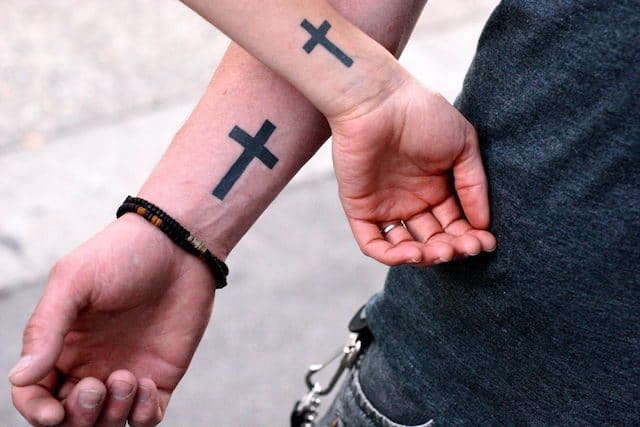
Having a tattoo is not an indication that someone has a personality disorder, but there is a bigger chance that people who have these disorders will get a tattoo. According to a study from 1968 conducted by Dr. Richard S. Post from Northwestern University of Law, some tattoos indicate to police officers who is likely to be a “social deviant” that is part of a dangerous sub-culture. Dr. Post acknowledged the history of tattoos and the cultural significance all over the world, and even mentions the artistic skills necessary for someone to be a tattoo artist. However, he goes into details over the different types of tattoos that exist, and how to tell which ones were done while in prison.
There is obviously a huge difference between someone who has a teardrop tattoo on their face and someone who gets a dolphin on their ankle. Some of the most common tattoos that indicate criminal history are a spider web on the elbow, three to five dots on the hand, and a clock without hands. There are also specific tattoos for specific gangs.
1 Comment
Excellent article!